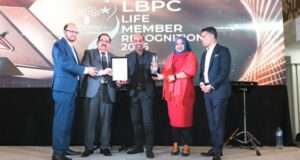Public Health England and a leading health charity have joined forces in a new campaign to tackle one of the biggest health issues facing England and a growing issue for ethnic minority communities. The Alzheimer’s Society’s Dementia Friends initiative aims to give people a greater understanding of dementia and to encourage the whole of society to think about the condition and how people with the condition can live in comfort and dignity.
Of the 665,000 people in England and Wales living with dementia, it is estimated that 25,000 are from ethnic minority communities. This figure is expected to rise significantly as the ethnic minority population ages. By 2026 it is likely to have doubled to nearly 50,000 and by 2051 it is likely to be over 172,000 – representing a seven-fold increase in 40 years. The increase in the incidence of dementia is likely to be disproportionately large because high blood pressure, diabetes, stroke and heart disease, which are risk factors for dementia, are more common among these ethnic groups.
Evidence suggests that there are lower levels of awareness and higher levels of stigma among some ethnic minority groups – the disease is often associated with “madness” and there is no equivalent word for dementia in the Asian languages. Also evidence suggests that South Asians present to their doctors for diagnosis much later than their white counterparts, by which time the disease has become more severe.
Dementia is caused by diseases of the brain. There are over 100 types of dementia and the most common is Alzheimer’s. It mainly affects (but is not restricted to) people over 65 years of age. It is not, as widely believed, a natural part of ageing, and can affect anybody regardless of race or social background.
Each individual will experience dementia differently and symptoms vary between people. In general a person with dementia will often have problems with some of the following:
day-to-day memory – difficulty recalling events that happened recently;
concentrating, planning or organising – difficulties making decisions, solving problems or carrying out a sequence of tasks (e.g. cooking a meal);
language – difficulties following a conversation or finding the right word for something;
visuospatial skills – problems judging distances (e.g. on stairs) and seeing objects in three dimensions;
orientation – losing track of the day or date, or becoming confused about where they are.
The Dementia Friends campaign aims to give people an understanding of what it’s like to live with dementia, to dispel common myths and stigma associated with the disease and to show how we can make a real difference to people living with the condition.
Jeremy Hughes, chief executive of the Alzheimer’s Society, said: “Research suggests dementia is on the rise within South Asian communities yet cultural factors relating to language, increased stigma and close-knit family bonds can make it harder for them to access information and advice. Through Dementia Friends people within South Asian communities can understand a bit more about what it is like to live with dementia and the small things that help those with the condition. It is easy and free to become a Dementia Friend, so I urge you to all sign up and make a difference.”
Duncan Selbie, chief executive of Public Health England, said: “Dementia is a growing challenge for many communities. Dementia has a big impact on the families and friends of those affected by the disease. People living with dementia need a helping hand to go about their daily lives and feel included in their local community. Becoming a Dementia Friend enables us to understand more about the disease and the little things we can do that will make a big difference to those living with dementia and their families.”
Dr Karan Jutlla, Senior Lecturer at the Association for Dementia Studies, said: ““South Asian communities have no translation for the term dementia, so it’s important to get them talking about it and learning from each other. It is through this process that we can start to defeat the stigma of the disease. Dementia Friends is a great initiative that can help our family, friends and communities to become more aware of dementia and understand how to help people with the condition.”
The initiative forms part of the Prime Minister’s Challenge on Dementia and builds on commitments declared at the 2013 G8 Dementia Summit, which included a call to improve the quality of life for people living with the disease.
To become a Dementia Friend, visit http://www.dementiafriends.org.uk/ and watch the short video, or find an information session run by a Dementia Friends champion (a trained volunteer) in your area. The full film of “With A Little Help From My Friends” will also be available to view on the site.
 East London News A Force for the community…
East London News A Force for the community…




